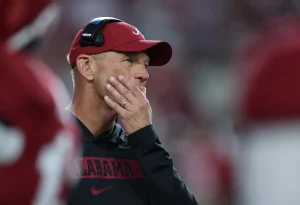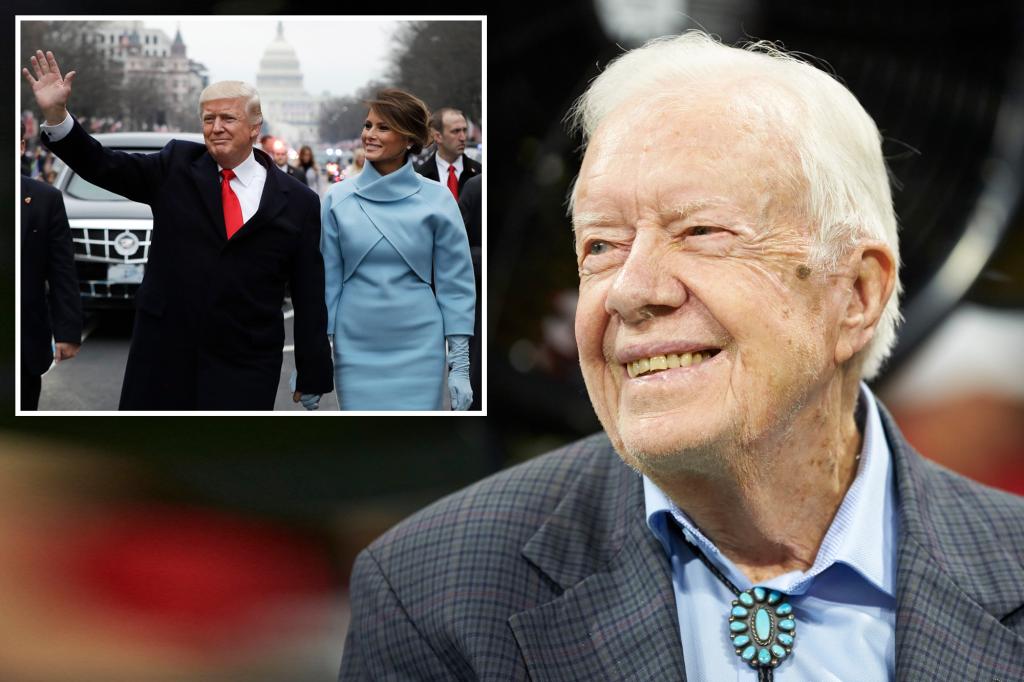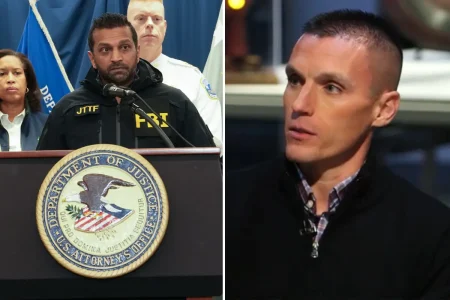Former President Jimmy Carter’s absence from Donald Trump’s upcoming inauguration stems from his delicate health condition, rather than political motivations. At nearly 100 years old and under hospice care for the past two years, Carter’s physical frailty prevents him from attending public events, including the inauguration ceremony. This marks the second inauguration Carter will miss, following his absence from President Biden’s inauguration in 2021. His declining health also prompted him and former First Lady Rosalynn Carter to transition to hospice care in 2023, before Rosalynn’s passing in November of that year. Were he in better health, a spokesperson asserts, Carter would attend the inauguration. His absence underscores the toll of time and the profound impact of age and infirmity on public life, even for figures of historical significance.
Carter’s non-attendance, while driven by health concerns, coincides with a wave of deliberate boycotts by other political figures. At least 18 Democratic representatives have declared their intention to abstain from the inauguration, a list including prominent New York Democrats such as Representatives José Serrano, Nydia Velazquez, Adriano Espaillat, Jerrold Nadler, and Yvette Clarke. Their decision represents a distinct form of protest, a political stance contrastive to Carter’s health-induced absence. While Carter’s inability to attend speaks to personal circumstances, the Democrats’ boycott signals a broader political narrative of dissent.
The contrasting reasons for these absences highlight the multi-faceted nature of political events like inaugurations. They serve not only as formal transitions of power but also as platforms for political expression, both of support and opposition. Carter’s absence, while regrettable, underscores the human element in political life, the constraints imposed by age and health. The Democratic boycott, conversely, emphasizes the role of political dissent, using absence as a symbolic gesture of disapproval. The inauguration, therefore, becomes a stage where both personal and political narratives unfold.
While Carter’s absence is explained by his health, the Democrats’ boycott merits deeper exploration. Their decision to abstain likely stems from a multitude of factors, including persistent disapproval of Trump’s policies and conduct, lingering concerns over the legitimacy of his election, and perhaps even a sense of solidarity with those who feel disenfranchised by his presidency. The boycott could be interpreted as a continuation of the political polarization that has characterized recent American politics, a tangible manifestation of the deep divisions that remain. By choosing not to attend, these Democrats make a clear statement, their absence speaking volumes.
The inauguration, a ceremony typically imbued with a sense of national unity and renewal, becomes a site of contested meaning in this context. For some, it signifies the continuation of American democracy, the peaceful transfer of power. For others, like the boycotting Democrats, it represents a stark reminder of political divisions, a symbol of resistance against an administration they deem unacceptable. The empty seats will undoubtedly become a focal point, a visual representation of the ongoing political tensions. The inauguration, therefore, transcends its ceremonial function, becoming a barometer of the nation’s political health.
In the broader context of American history, presidential inaugurations have often been occasions marked by both celebration and dissent. While they symbolize the continuity of democratic processes, they also provide a platform for expressing diverse viewpoints and political positions. The confluence of Carter’s health-related absence and the Democrats’ deliberate boycott adds another layer to this historical tapestry. It highlights the complex interplay of personal circumstances, political convictions, and symbolic actions that shape the narrative surrounding these significant events. The inauguration of Donald Trump, much like his presidency, promises to be an event marked by both tradition and disruption.









